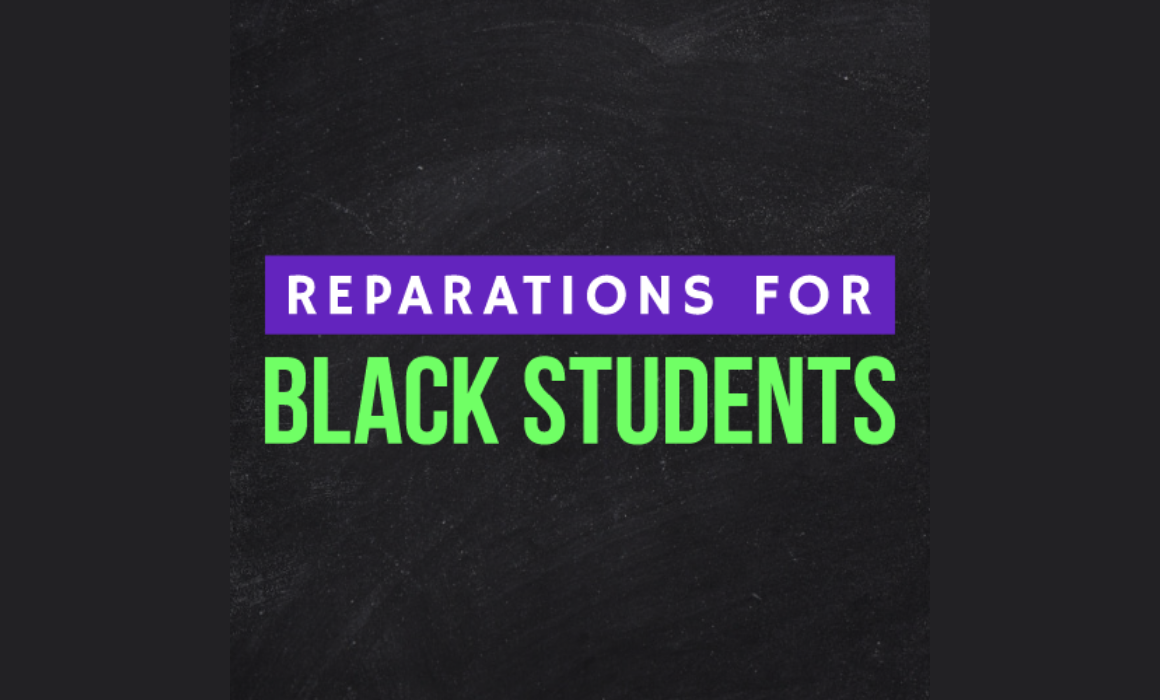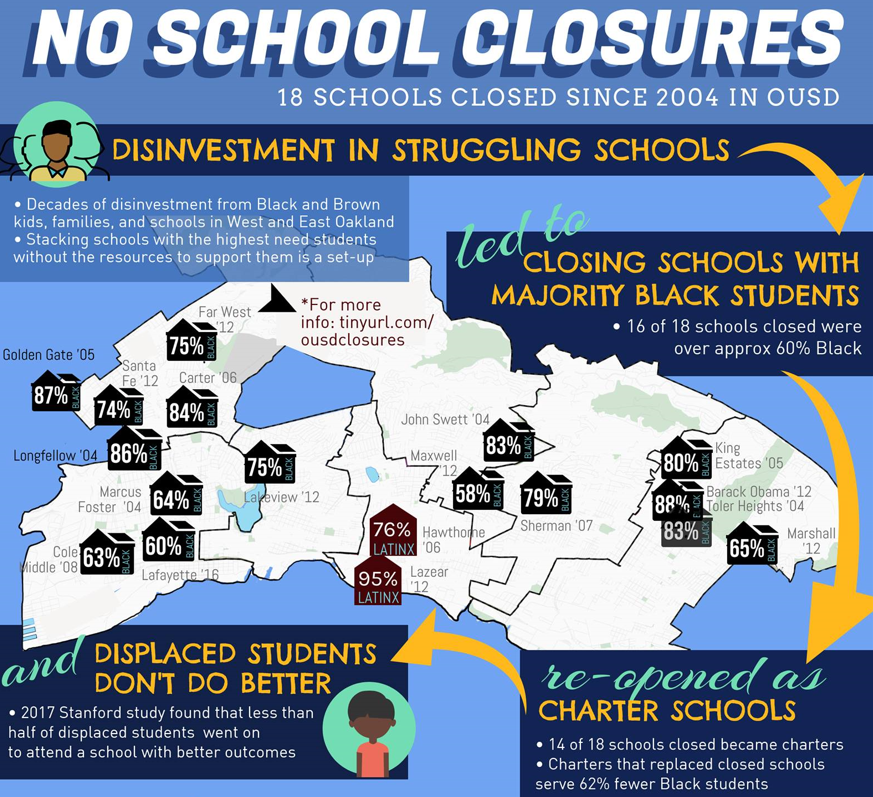
A community-organized effort to undo the impacts of decades of systemic anti-Black racism in Oakland public schools led to the adoption of a resolution by the Oakland Unified School District (OUSD) Board of Education earlier this year that will prioritize investment in Black communities.
The Reparations for Black Students Resolution directs OUSD to take all steps necessary to eliminate the Black student opportunity gap across all district schools by 2026 and implement a series of initiatives to ensure Black students get what they need to feel safe, healthy and supported to succeed.
“Reparations for Black Students is our model of community schools, targeted at Black students,” says Kampala Taiz-Rancifer, a member of Oakland Education Association (OEA). “This is an educator-community partnership deliberately done through a racial justice lens.”
The movement grew out of a series of listening sessions led by the Justice for Oakland Students Coalition that revealed many community members felt invisible and unimportant to the school district, as well as an “enormous amount of anti-Black racism.” The issues surfaced during these meetings became the foundation for 15 demands on education and families organized by Taiz-Rancifer, OEA President Keith Brown, Oakland-based Black Organizing Project, and the Bay Area Parent Leadership Action Network. Raising the profile of educational issues important to the Black community, the group helped build a coalition of Black organizations to fight for policy change.
The Reparations movement was a priority for OEA, with a wide range of the local’s 3,000 members taking active roles in elevating the demands for the public education all Oakland students deserve. What resulted was a community-led and educator-supported movement that took only eight months to get from the issuing of the demands to the school board’s approval of 14 out of 15.
“Black, Indigenous and People of Color (BIPOC) students have traditionally received very little support, which has created unequal results,” says VanCedric Williams, Oakland school board member. “This resolution says ‘enough is enough’ and reverses our policies toward our BIPOC students so they feel healthy and supported, and they succeed.”
Williams says the groundwork for this movement was built during OEA’s 2019 strike, when educators, families and community groups united to fight for the schools and resources Oakland students deserve. Utilizing these networks, Williams said educators put forth community-driven policies, speaking out for families and their needs.
“OEA’s efforts pushed us over the top,” says Williams, also a teacher in San Francisco and member of United Educators of San Francisco. “There’s this belief in just, fair and equitable education that overrides the narrative pushed by the district.”
Taiz-Rancifer says OEA members feel very strongly about the work for equity in Oakland schools.
“People see the disparities. It becomes very personalized because we are connected to our communities and our families,” she says.

Graphic by Justice For Oakland Students
The only demand not approved by the school board in March was the ending of school closures and charter co-locations at schools with high populations of Black and Brown students – a huge piece of the Reparations movement. Unbowed, educators and the community continued organizing over the summer, successfully bringing a resolution to the school board in September that would have set a moratorium on school closures. The proposal narrowly failed, and educators now look at the coming contract bargain and 2022 school board elections for ways to make progress on this important item.
“The community has been devastated by these closures of historically majority black schools,” Williams says.
Reparations Demands
The Reparations for Black Students demands included:
Stop and Repair the Immediate Harm
Design a community-informed plan for a safe and healthy return to school prioritizing Black students and their families as the hardest hit by the COVID-19 pandemic.
Commit to closing the Black digital divide that disproportionately limits access to information and resources to Black families.
End discriminatory discipline practices and disproportionate expulsions and suspensions of Black students.
Stop school closures and co-locations of charter schools at in-district schools – especially at schools with high percentages of Black students.
Invest in Reparations for Black Students & Families
Establish a Black Thriving Fund that brings targeted resources and opportunities to secure a just and equitable education for Black students.
Create a real Racial Equity Formula that includes all historic and current factors impacting Black communities.
Establish a Black Student and Families Thriving Task Force that represents the voices of Black students, parents, families, communities and has the power to monitor the implementation of targeted plans and resources for Black thriving.
Transform Community Schools to Center Black Students
Invest in Black Family Engagement by increasing opportunities to participate in decision-making at the school and district levels.
Dramatically increase the literacy rates of Black students across all grades by creating a city-wide literacy campaign for Black students.
Prioritize resources for Black academic growth and achievement by assessing how the district uses funds to address the academic and socio-emotional needs of Black students across various designations.
Prioritize resources to create anti-racist cultures of belonging and increase the cultural competence of our educators, staff and their school communities to center Black thriving.
Resource and ensure that all Black families have access to pre-kindergarten early education, including resources and services that support early family engagement.
Recruit and retain Black teachers and Black school leaders by meaningfully supporting and investing in them.
The Discussion 0 comments Post a Comment